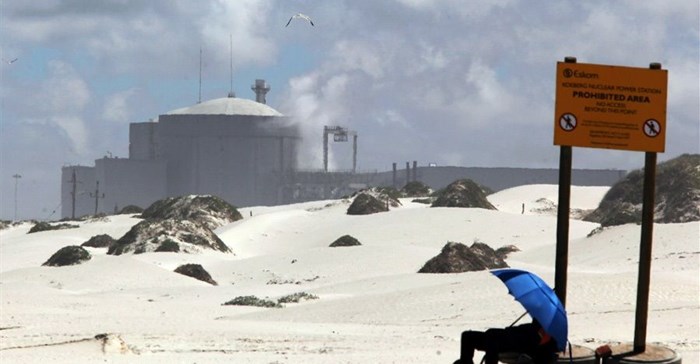The environmental authorisation to construct and operate a new nuclear power station in Duynefontein, just north of Koeberg in Cape Town, has been challenged by the big three eco groups on the grounds it poses a real risk to present and future generations.

Koeberg nuclear power station. Photo: Sunday Times
Earthlife Africa Jhb, Greenpeace Africa and South African Faith Communities’ Environment Institute (Safcei) have officially filed a notice with the Department of Environmental Affairs testing the validity of the authorisation.
“We believe that the environmental impact assessment’s failure to fully assess the impacts of the proposed nuclear power station creates a real risk. This authorisation can and must be challenged,” says Penny-Jane Cooke, climate and energy campaigner for Greenpeace Africa.
Alternative energy sources
The assessment process has been underway for nearly a decade, and has been heavily contested by affected communities and broader South African society because of the potentially far-reaching implications of the construction of a new nuclear power station. Choosing a site in the midst of Cape Town will only fuel the resistance that has dogged nuclear plans from the moment that they were announced.
“Independent science is clear about the most suitable energy solutions for the South African people and the economy, and it does not include nuclear energy. As a multi-faith constituency, we call for ethical governance and affordable, and just energy solutions for South Africa now.
In our role as custodians of the living earth, we strongly advocate for an energy plan that invests in and includes much more renewable energy, sustainable jobs and less damage and risk to citizens, and the environment,” says Francesca de Gasparis, executive director, Safcei.
Flawed report
“The Department of Environmental Affairs must safeguard the environmental rights of all South Africans and we feel that they have failed in this duty by authorising the construction of this nuclear power station.
“The department has chosen to follow the recommendations of a flawed report, which were based on outdated, and incomplete information, as well as assumptions that are not justified or justifiable. We believe that this authorisation stands to be set aside on appeal,” says Makoma Lekalakala, senior programmes officer for Earthlife Africa, Johannesburg.
The detailed appeal will be submitted by the due date at the end of November, and the organisations are seeking legal advice in terms of the way forward.













































